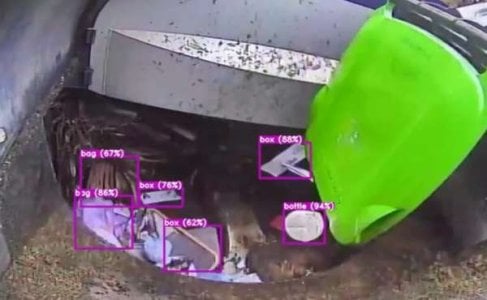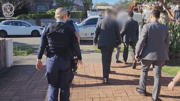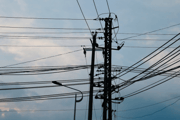Aussie councils roll out innovative solutions for one common mistake
By
Danielle F.
- Replies 15
Australians take pride in their beautiful environment and understand the importance of keeping it clean and healthy.
Recycling plays a crucial role in this effort, but mistakes often slip up when it comes to sorting waste.
What if there was a simple solution to this common problem?
According to statistics, up to 35 per cent of items that end up in recycling facilities are not recyclable, which could lead to contamination.
With that in mind, Aussie councils have introduced innovative technology to ensure that residents are putting the correct items in their recycling bins.
Australian tech company VisionHQ mounted cameras on garbage trucks to capture images of the waste as it is being collected.
The real game-changer, however, is the artificial intelligence (AI) software analysing each item in real-time to determine if it's recyclable or not.
The mastermind behind this program, engineer Duval Longa, showcased the technology's capabilities at the Waste Expo Australia conference in Melbourne.
As the garbage trucks collect the bins, the camera could inspect the contents and identify any non-recyclable items.
With individual identification marks on bins, the system could also pinpoint which households are making recycling errors.
'If the camera can see it, then we've definitely detected it. There's no delay,' Longa explained.
The goal is to educate and assist residents in sorting their rubbish correctly.
'The problem is mostly that a lot of residents aren't educated about what's exactly supposed to go in the bins,' Mr Longa explained.
'The most common thing we get is people putting recyclables in plastic bags, so hopefully we're helping teach people how to recycle so we get less landfill.'
Mr Longa also explained how training the AI was akin to teaching a child.
'You give them pictures of cats and dogs, and eventually they learn what each is,' Mr Longa explained.
'That's how we train the AI—we give it hundreds of thousands of pictures of waste.'
Trials for the AI-powered software are currently underway with several councils, including Brisbane, Melbourne, Sydney, and Perth.
However, some residents felt uneasy about a 'Big Brother' approach to waste monitoring.
However, Mr Longa shared the altruistic motive behind it.
'It's for the greater good. We only have one planet, and we need to take care of it,' he asserted.

Have you noticed any changes in your council's approach to recycling? Do you think this technology could improve our recycling habits? Share your thoughts and experiences with us in the comments below.
Recycling plays a crucial role in this effort, but mistakes often slip up when it comes to sorting waste.
What if there was a simple solution to this common problem?
According to statistics, up to 35 per cent of items that end up in recycling facilities are not recyclable, which could lead to contamination.
With that in mind, Aussie councils have introduced innovative technology to ensure that residents are putting the correct items in their recycling bins.
Australian tech company VisionHQ mounted cameras on garbage trucks to capture images of the waste as it is being collected.
The real game-changer, however, is the artificial intelligence (AI) software analysing each item in real-time to determine if it's recyclable or not.
The mastermind behind this program, engineer Duval Longa, showcased the technology's capabilities at the Waste Expo Australia conference in Melbourne.
As the garbage trucks collect the bins, the camera could inspect the contents and identify any non-recyclable items.
With individual identification marks on bins, the system could also pinpoint which households are making recycling errors.
'If the camera can see it, then we've definitely detected it. There's no delay,' Longa explained.
The goal is to educate and assist residents in sorting their rubbish correctly.
'The problem is mostly that a lot of residents aren't educated about what's exactly supposed to go in the bins,' Mr Longa explained.
'The most common thing we get is people putting recyclables in plastic bags, so hopefully we're helping teach people how to recycle so we get less landfill.'
Mr Longa also explained how training the AI was akin to teaching a child.
'You give them pictures of cats and dogs, and eventually they learn what each is,' Mr Longa explained.
'That's how we train the AI—we give it hundreds of thousands of pictures of waste.'
Trials for the AI-powered software are currently underway with several councils, including Brisbane, Melbourne, Sydney, and Perth.
However, some residents felt uneasy about a 'Big Brother' approach to waste monitoring.
However, Mr Longa shared the altruistic motive behind it.
'It's for the greater good. We only have one planet, and we need to take care of it,' he asserted.
Key Takeaways
- Australian councils are employing new AI-driven cameras on garbage trucks to improve recycling and reduce contamination.
- VisionHQ's AI software could identify non-recyclable items in real-time as garbage trucks collect bins, which could trace contamination back to individual households.
- Using AI in waste management aimed to reduce landfills through educating residents about correct recycling practices.
- Several concerned citizens raised privacy concerns about the surveillance aspect of the technology. Its inventor emphasised the need for proactive measures in waste management.








